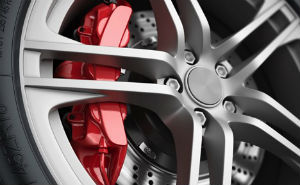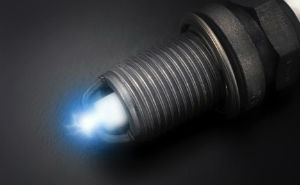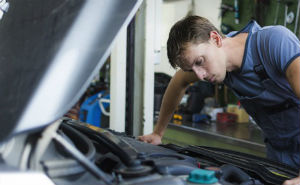Your car is responsible for helping you navigate through life, but more than that, it’s responsible for keeping you safe in your travels. When something goes wrong, it’s in your best interest to correct the problem with auto repair as soon as possible to prevent the risk of collision or injury, and get you back on the road in a timely manner. When something big happens, the signs are obvious—you might be unable to start your engine, or your car may start smoking from under the hood. These types of problems are detectable even to the most inexperienced motorists, and generally demand fast action. But there are other, subtler problems that can be difficult to detect, even for seasoned professionals at an auto repair center.
Identifying these problems may be difficult, but it’s important if you want to keep your car up, running, and safe. In most cases, a simple auto repair or two is enough to prevent the problem from compounding further, but it’s up to you to notice the problem before it gets any worse.
1. Declining Brake Performance.

You might notice it takes more power to get your car to stop, or that it takes a greater distance for your car to slow to a halt. Any braking problems could be the result of worn brake pads, leaked braking fluid (see below), overheating of the brakes, or a number of other issues, so if you notice any differences in your braking ability or performance, get your car checked out immediately.
2. Leaking Fluids.
Your car depends on several different fluids to operate efficiently, including gas, oil, water, power steering fluid, brake fluid, and even windshield washer fluid. A collision, even a minor one, can create small punctures or breaks in the lines or storages that carry these fluids, resulting in slow leaks of fluid. A major leak is noticeable immediately, but smaller leaks can go undetected for weeks or months before bigger problems begin to emerge.
Check under your car periodically to see if there are any signs of unexplainable moisture, and check your fluid levels regularly to ensure you remain topped off. If you’re involved in a collision, even if there are no major signs of damage, take your car to an auto repair shop to make sure there are no imperceptible leaks.
3. Misfiring Spark Plugs.

You can tell when a spark plug is misfiring because your engine will sound “rough” when idling, and you might have trouble starting your car—but since these may be minor, it’s hard to tell exactly when a spark plug needs replaced. Fortunately, spark plug replacement is a simple, inexpensive auto repair.
4. Misaligned Wheels.
Wheel and tire damage are some of the most common causes of car breakdowns according to AA Patrols. If your wheels have become misaligned, it can affect the wear of the tires, decrease your steering control, and result in slow leaks if the damage is severe enough. Wheels become misaligned when hitting major bumps or obstacles in the road, but such changes occur gradually, and almost always go unnoticed until the wheels or tires are inspected for faults.
If you notice the wear on the treads of your tires are uneven, it’s a sure sign that your wheels are misaligned. Small differences in your steering—such as “drifting”—can also be signs of misalignment. Most cars require alignment tweaks every few years or so, and as auto repairs go, they’re fairly inexpensive.
5. Transmission Performance.

These are just five of the most common hard-to-detect problems that can affect cars, and if you travel regularly, odds are at least one of these issues will affect your car eventually.
What to Do About Hard-to-Detect Problems
Once identified, these problems can be corrected with simple, and often inexpensive auto repairs for any auto repair center. The main problem is identifying them before they grow any worse. When it comes to that identification process, you have two main options—the first is dependent on your own senses. Remember these common problems and remain vigilant for signs of their appearances; if you notice something wrong, you can attempt to repair the issue yourself or bring it into an auto repair shop for further evaluation.
The second option is far easier for most motorists—simply schedule regular appointments with an auto repair center and have your vehicle routinely evaluated for signs of deterioration. Your auto repair professionals will be able to detect these common problems faster and more accurately than you will, and you’ll never have to worry about a problem growing out of your control if you catch it early enough. Schedule an appointment with RC Auto Specialists today, and make sure your car remains in peak operating condition.
